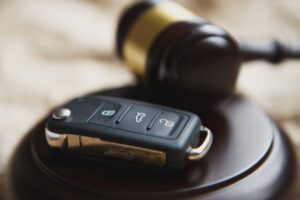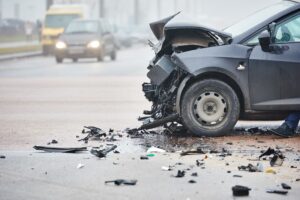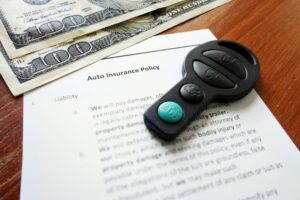If you are involved in a car accident, it can result in significant stress and unexpected burdens on your life. As you navigate the aftermath of an automobile collision, you must decide whether you will hire a car accident attorney to represent you in the matter. Car accident victims are often not sure whether a lawyer is necessary for their car accident insurance claim and whether hiring an attorney can make a difference in their case.
There are some limited instances where hiring a car accident attorney might not be necessary. However, the reality is that in most car accident claims, a lawyer can help you fight for the maximum compensation available, and it is in your best interest to hire an experienced car accident attorney.
If You Are Injured
Getting an attorney involved is most important if you are injured in a car accident. Your injuries may be minor and heal with rest and time, or they may be severe, significantly or permanently affecting your daily life. Regardless of how severe your injuries are, it is always a good idea to consult with an attorney as soon as possible if you have been injured.
In some cases, you may not realize you have an injury while at the crash scene or even in the hours after the crash. You may begin to experience new pain, discomfort, or limitation in the next few days that reveals an injury. This is quite common with brain injuries and neck/back injuries.
What initially appears to be a minor injury may also worsen over time or cause complications, such as an infection. Recovery does not always follow the same timeline or progress predictably. Thus, you should seek medical attention after a crash and then contact an automobile accident attorney.
Injuries That Should Lead You to Call an Attorney Immediately
 The types of injuries that can happen in a motor vehicle accident vary. Factors such as speed, the types of vehicles involved, the use of seat belts, and the safety features equipped on the vehicles can all influence the severity of the injuries you sustain. In Michigan, your legal options become more complex if you or a loved one suffers a significant injury, disfigurement, or death. The following injuries should cause you to call an attorney soon after you are involved in a crash:
The types of injuries that can happen in a motor vehicle accident vary. Factors such as speed, the types of vehicles involved, the use of seat belts, and the safety features equipped on the vehicles can all influence the severity of the injuries you sustain. In Michigan, your legal options become more complex if you or a loved one suffers a significant injury, disfigurement, or death. The following injuries should cause you to call an attorney soon after you are involved in a crash:
- Injuries to the head, including a concussion or traumatic brain injury
- Neck, back, or spinal cord injuries
- Fractured bones
- Burns due to airbags or collision-related fire
- Internal organ injuries
- Any injury that requires surgery or keeps you from working for more than a few days
If the Damage to Your Vehicle and Property Is Serious
If you are in a car accident in which the damage to your property is significant, an attorney may be able to help you seek compensation for your losses. Property damage limits and coverage may not be sufficient to cover your property losses. Although you may think a lawyer is unnecessary in a car accident without injuries, you can run into trouble if you have expensive damages and seek significant compensation in the claims process. A car accident attorney can represent your interests and help you prepare and file a claim that seeks the maximum money available to cover your losses following a crash.
When There Are Multiple Motorists Involved
While many car accidents only involve two vehicles, crashes can involve multiple vehicles. With every additional vehicle involved in an accident, the legal issues become more complex. Knowing which parties are liable and the insurance coverage available in a multi-car accident is often difficult to determine. It may not be clear who is responsible for paying your damages.
Additionally, when there are multiple victims, it is more likely the insurance policy limitations will be less than the total damages, which can leave you with more losses than what an insurer offers you in compensation. After hiring a lawyer, you can rest easy knowing that they are in your corner fighting to guarantee your compensation. They will represent your interests and seek the best possible outcome for you amongst the many other parties involved in the claim.
When There Is a Dispute of Liability
You do not know what determination an insurance company will make regarding liability. While you may have some indications of who was at fault because of the police report, an insurer is not bound to follow the findings of a law enforcement officer. The insurer may consider other evidence that leads them to a different outcome when determining who is liable for the damages in a car accident. It is not uncommon to face an unexpected claim denial.
If you believe an insurance company has unfairly denied your claim or is going against the evidence in the case, consult with a car accident lawyer immediately. In some cases, a lawyer may help you reverse an insurance claim denial through negotiations, or they can take the insurance company to court to fight their determination of liability.
How Can an Attorney Help You After a Car Accident?
Having an attorney can fundamentally change the outcome of a car accident claim. The insurance company in charge of processing your claim has its own lawyers ready to protect the company’s interests. A party that knows they are at fault for a collision and damages may have an attorney representing them personally to protect their assets.
Ultimately, every party to the case is looking out for themselves and trying to reach an outcome in their favor. Going through the insurance claims process without an attorney representing you personally can put you at a disadvantage and give the other parties to the case an upper hand.
Once you hire a lawyer to represent you in a car accident claim, they will immediately take action to protect and defend your rights under the law.
Help You Track Down and Gather Evidence
It is vital in a car accident case to have evidence of fault and evidence to support your claim for damages. A car accident lawyer will help you find any evidence available to support your case. However, knowing what evidence you need or how to get it can be challenging. An attorney that is representing you will help you through this process.
Evidence that a lawyer can help you retrieve for your case includes:
- Physical evidence
- Photos, videos, or other recordings related to the accident
- Witnesses testimony
- Medical records
- Estimates for repairs
- Expert testimony
- Your employment history and financial records
- Accident reports
Determine Who Owes You Compensation for Your Losses
Determining liability for a car accident means identifying the person or party who is responsible for the accident and must pay for your losses. While fault influences liability, the driver who is at fault for the crash may not be the only liable party. Employment, vehicle ownership, and other factors can contribute to another party having some liability for your damages.
A car accident attorney can evaluate each party in a case and determine whether they could be legally responsible for your damages. There may be situations where you may not realize there is another party you could hold responsible other than the driver determined to be at fault.
Discover Available Insurance Coverage
Insurance coverage after a car accident can be tricky. Certain policies will cover your no-fault benefits, while others cover your pain and suffering, and you may have uninsured/underinsured or umbrella policies at play as well. A car accident lawyer understands these various policies and who is eligible to file a claim under each.
When a lawyer is representing you in a car accident insurance claim, you can rest assured knowing they will find the insurance policies active and available to you amongst the parties to the crash. You typically will file a claim with your own insurance company, but there are circumstances where you may file a claim with the at-fault party’s insurer or even with another party’s insurer.
Your lawyer will navigate these considerations with you to ensure you file a claim with the appropriate insurers and seek all opportunities to recover your damage.
Calculate Your Losses
Your losses after a car accident may not always be clear. Predicting the accident’s effect on your day-to-day, work, and future can be hard. A lawyer will work closely with you to ensure that they account for all of your damages and seek the maximum compensation for your car accident insurance claim. Knowing the extent of your damages through an estimate of your losses will help you better prepare for potential settlement offers that may come your way.
Negotiate a Settlement if Possible
Ultimately, an insurance claim seeks recovery of the money you need to pay for medical care and other damages after a car accident. When you hire an accident attorney, they will make it their mission to get the strongest outcome for you. Your lawyer wants you to get the maximum compensation available in your case. They will go through the negotiation process with the insurer and other liable parties to reach an acceptable settlement.
Represent You Beyond Negotiations When Necessary
If you do not get the settlement offer you want or need, a lawsuit may be necessary for your car accident case. While filing a lawsuit is something you may hope to avoid, your car accident attorney will be there with you every step if it becomes needed in your case. They can represent you throughout the trial until a judge or jury renders a verdict or you come to a resolution with the other party.
How Soon After a Car Accident Should You Contact an Attorney?
Now that you understand the value of having a lawyer represent you after a car accident, you may wonder when to seek legal assistance. The earlier you hire a lawyer in the car accident claims process, the better.
Insurers often call car accident victims before they have legal representation. What you say or don’t say during these initial calls can damage your case and compensation. Do not respond to these calls; instead, contact a car accident attorney near you. The sooner you take steps to hire a car accident lawyer, the sooner they can take action and speak to the insurance companies and other parties involved on your behalf.
 The cause of most car accidents is simply driver error. Negligence – not driving with reasonable care and caution – is responsible for most motor vehicle accidents and, in turn, the injuries and losses suffered by innocent victims.
The cause of most car accidents is simply driver error. Negligence – not driving with reasonable care and caution – is responsible for most motor vehicle accidents and, in turn, the injuries and losses suffered by innocent victims. There are many factors that influence the amount of money that an insurer is willing to pay you in the settlement of an insurance claim. These factors concern all aspects of the accident, the injuries you sustain, and the impact on your life, which determine how much money you are eligible for under the applicable insurance policies and the law.
There are many factors that influence the amount of money that an insurer is willing to pay you in the settlement of an insurance claim. These factors concern all aspects of the accident, the injuries you sustain, and the impact on your life, which determine how much money you are eligible for under the applicable insurance policies and the law.